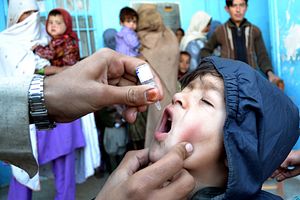While the general image of the United State’s Central Intelligence Agency, in part thanks to its popular portrayal, is one of extreme competence, events through history have shown that the organization is prone to taking action without fully considering the consequences. While not on the scale of the some its Cold War-era regime change operations, the CIA used vaccination programs in Pakistan as a cover for its espionage operations in the hunt for Osama bin Laden. Shakil Afridi, a Pakistani doctor on the CIA payroll, ran a hepatitis vaccine program in Abottabad — the city where Osama bin Laden would later be killed during a U.S. Navy SEALs raid in 2011. For his complicity in the U.S. operation, Afridi was initially convicted and sentenced to 33 years in prison but is now facing a retrial.
A consequence of the CIA’s use of vaccination programs in Pakistan has been that the Pakistani public and anti-American groups, including armed militias, are growing increasingly skeptical of any and all public health workers supplying vaccines, suspecting the CIA’s involvement in some way or another. As a result, several vaccine workers, particularly those working on polio, have been killed in Pakistan, leading to a significant public health challenge. As The Diplomat recently reported, Pakistan is currently experiencing a polio outbreak that has led to the country’s citizens facing travel restrictions.
Taking note of the consequences, the White House on Monday pledged to refrain from using vaccination programs as cover for the United States’ espionage operations. According to the Associated Press, Lisa Monaco, a top counterterrorism adviser to the president, wrote the deans of 13 public health schools affirming that the CIA has agreed to no longer use these programs for intelligence purposes. In her letter, she notes that the United States “strongly supports the Global Polio Eradication Initiative and efforts to end the spread of the polio virus forever.”
CIA Director John Brennan had committed to the non-use of vaccination programs in CIA espionage operations as early as August 2013 according to Monaco’s letter, agreeing that the policy would apply “worldwide and to U.S. and non-U.S. persons alike.”
The episode acutely highlights the unintended consequences of the CIA’s hunt for bin Laden. As the CIA’s use of these public health programs became public, not only did the Pakistani public suffer a lack of proper public health service provision due to violence against vaccine workers, but anti-Americanism grew in the region as well. As the U.S. continues its pursuit of important national security objectives in Pakistan and elsewhere, it should remain cognizant of the unintended and undesired consequences of its actions.
































